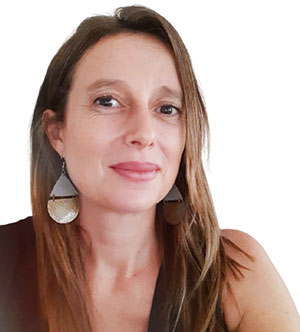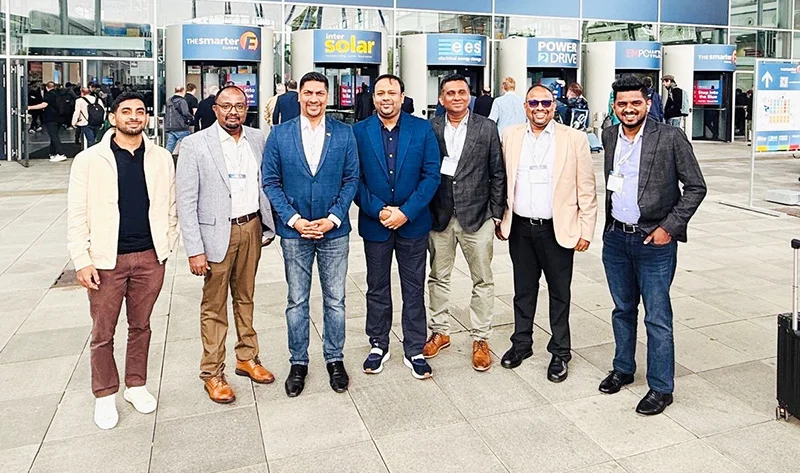Business
British Council plans to reopen Teaching Centres for Young Learners

At the British Council in Sri Lanka we’re excited to be preparing for the reopening of our teaching centres for face-to-face classes on 7 January 2022 in Colombo, Kandy, Jaffna and Matara. After a considerable period of closure due to the pandemic, our students and teachers are keen to be back in classrooms to resume face to face learning.
Since the onset of the pandemic, all of our classes have been online to make sure our students don’t miss out on their English learning journey. They have also been taking part in sessions with our teachers online with activities such as Keep Fit and Fun, baking, crafts, storytelling, quiz evenings, yoga and conversation clubs. With mainstream schools closed this interaction with peers alongside opportunities to try out new skills has been critical for the wellbeing of our young learners.
As we moved online this year, our young learners in Sri Lanka have celebrated success as winners in the British Council global international speaking competition and global art competition as well as taking part in exciting opportunities in their online classrooms to connect live with students in other British Council teaching centres around the world. This term students have been connecting with students in Spain, Taiwan and Korea to begin new friendships and learn about their cultures and way of life.
Helen Sykes, Deputy Director and Teaching Centre Manager, British Council Sri Lanka stated; ‘’All our students have had a lot of fun and learnt just as much as in our classrooms, but we know that many of our learners have really missed their face-to-face classes and a significant number paused their learning with us waiting until we are back face to face to continue their learning with us. There is no substitute for face-to-face interaction, and it works wonders for building confidence and spoken skills in language learning. We know from feedback that our students and parents feel comfortable and are ready to return to our classrooms and so, with all the government safety guidelines in place we are really excited and can’t wait to welcome past students back and new students in to our four British Council teaching centres around the island very soon.’’
Each year, the British Council teaches over 100 million students worldwide in our teaching centuries in over 100 countries. In Sri Lanka we teach all levels from age 3 through to 18. We are also looking forward to opening back up face to face for our adult learners in 2022. Its quick and simple to register for our courses with an online level check and consultation to make sure we place you in the right class before you register.
Our products, developed by our expert international teams and taught by experienced teachers uses a methodology that focuses on much more than just language skills. We focus on the development of leadership and collaboration skills, critical thinking skills, digital literacy and autonomous learning in a relaxed environment where our students can be themselves and have fun learning. Students who join the British Council become a part of a global network of English learners from across the globe with opportunities to interact with their peers from classrooms around the world built into our syllabus. As a supplement to our courses for young learners we run events in our library, global competitions and a variety of online fun and free activities to have fun in English with our expert teachers. Our premises are a safe and secure space for children; a place to meet and interact safely with peers and develop self confidence in an inclusive, diverse and fun learning environment.
 Helen Sykes, Deputy Director and Teaching Centre Manager, British Council Sri Lanka
Helen Sykes, Deputy Director and Teaching Centre Manager, British Council Sri Lanka
One Parent stated, ‘My sons experience at British Council has been amazing. Not only have I witnessed a massive and exponential growth in his English both in terms of speaking and writing, I have also seen his confidence and fluency in using this language grow as well. This is the only class my son actually looks forward to. I believe that it is this passion for learning English that British Council has imbued in him through the relaxed, fun, and engaging environment present there that is responsible for his improvement’.
Our pre-school courses, ‘Learning Time with Timmy’ developed in collaboration with Academy Award®-winning Aardman animation studios, is hugely popular with little ones and their parents. Fun and interactive, we have weekly classes for three, four and five-year-olds.
Our ‘Primary Plus’ course for six to eleven years, focuses on developing your child’s creativity so that they can express themselves with confidence that goes beyond their English language skills. Our ‘Secondary Plus’ course for twelve to seventeen years, is packed with content and skills to build confidence and help your child reach their full potential in their future lives as young adults.
Registration has started for young learners for the new academic year starting in January. You can book a level test online on our website www.britishcouncil.lk or give us a call on 0707521521 for more information.
Business
World Bank may convert infrastructure loans into tradable assets

A game-changer for Sri Lanka’s capital market
As the global community convened for the World Bank Group’s 2025 Spring Meetings under the timely theme “Jobs: The Path to Prosperity,” one message stood out: prosperity in the developing world depends not only on physical infrastructure but also on strong financial systems.
Among the influential voices at this year’s gathering was Douglas L. Peterson, Special Advisor to S&P Global and a longstanding advocate of resilient market economies.
Drawing from a decade-long tenure as CEO of S&P Global, Peterson delivered key insights that resonate deeply with the challenges and opportunities facing emerging economies such as Sri Lanka.
Peterson stressed that while global capital is abundant, it doesn’t move indiscriminately. “It follows signals, namely, data, transparency, regulatory certainty, labour and market stability.”
“When investors look to deploy capital in developing markets, they’re seeking a solid financial infrastructure,” Peterson said. “That includes reliable data, transparent pricing mechanisms, independent credit rating agencies, and clearly defined bankruptcy laws.”
These factors may not make headlines, but Peterson underscored their essential role.
“Financial infrastructure enables confidence, and confidence attracts investment,” he said.
A key initiative Peterson is championing in collaboration with the World Bank is titled ‘Originate to Distribute’, a structured finance approach where loans are created by institutions like the World Bank but sold to private investors.
Traditionally, loans from development banks remain on their balance sheets for decades. This initiative proposes standardising and structuring such loans so that private investors can purchase, pool, and trade them – essentially converting infrastructure loans into a new, tradable asset class.
“This is about creating velocity and scale,” Peterson said. “If the World Bank can originate loans and distribute them to the private sector, every dollar stretches further. It helps close the multi-trillion-dollar infrastructure investment gap.”
For countries like Sri Lanka, where public finances are under pressure, such a model could unlock significant private capital provided the regulatory environment and financial infrastructure are prepared to support it.
In alignment with the World Bank’s focus on job creation, Peterson prioritised five sectors he believes are pivotal for employment growth in developing nations: infrastructure (both physical and digital), agri-business, healthcare, tourism, and manufacturing. The common thread across all these sectors, he asserted, is infrastructure.
“Build an airport and you get hotels, transport services and even carbon savings,” Peterson said. “A bridge not only connects communities but also cuts costs, travel time, and emissions.”
According to Peterson, infrastructure investment yields a multiplier effect, often generating an additional $1.40 to $1.60 for every dollar spent. It also catalyses other industries. Manufacturing depends on roads and ports; tourism needs transport and energy; agriculture requires logistics and storage; and healthcare relies on reliable access and communication systems.
Peterson’s reflections also touched on a more structural issue that Sri Lanka is currently facing; the need to develop robust domestic capital markets. He emphasised moving beyond a banking-dominated financial system toward one that includes institutional investors like insurance companies and pension funds.
“These institutions become long-term investors,” he noted. “They form the foundation for sustainable infrastructure investment. Homegrown capital reduces reliance on external debt and increases financial resilience.”
Peterson’s remarks serve as a timely reminder as job creation and long-term prosperity in Sri Lanka will not come through piecemeal efforts. Instead, they require coordinated investments in both physical and financial infrastructure, from better roads and ports to regulatory frameworks that inspire investor confidence.
Unlocking private capital through trust, transparency, and smart financial engineering is the way forward. And as leaders like Peterson have shown, the tools and models already exist. It is now up to policymakers and financial leaders in Sri Lanka to ensure Sri Lanka is ready to embrace them.
Douglas L. Peterson currently serves on the board of the UN Global Compact and was formerly CEO of S&P Global, where he expanded the company’s market capitalisation from $16 billion to over $150 billion. He also led the G7 task force on sustainable finance in 2021.
By Sanath Nanayakkare
Business
AHK Sri Lanka facilitates business delegation to Intersolar Europe 2025

The Delegation of German Industry and Commerce in Sri Lanka (AHK Sri Lanka) successfully organized a visitor delegation to Intersolar Europe 2025, held from 7 – 9 May in Munich, Germany. Recognized globally as one of the most significant and comprehensive trade fairs dedicated to the solar industry, Intersolar serves as a premier platform for showcasing the latest innovations in renewable energy and sustainable technologies.
The Sri Lankan delegation comprised senior representatives from prominent companies in the sector, including Mega Solar, Micro PC Systems, Eco Solar Rays, and Puwakaramba Building Solutions, reflecting the country’s growing commitment to advancing renewable energy solutions.
The primary objective of this visit was to provide Sri Lankan companies direct access to the latest developments in solar technology, including sustainable energy solutions, energy storage systems, e-mobility, floating solar applications, agrivoltaics and recycling solutions. By connecting local enterprises with cutting-edge technologies and global industry leaders, AHK Sri Lanka aims to facilitate the adoption of modern energy solutions in Sri Lanka and support the nation’s broader transition to a more sustainable and energy-secure future.
A key highlight of the delegation’s agenda was a strategic meeting with the organizers of Intersolar Europe. This engagement provided valuable insights into the exhibition’s future vision and fostered discussions on potential collaboration opportunities between German and Sri Lankan stakeholders in the renewable energy sector.
Further amplifying the value of the delegation, AHK Sri Lanka coordinated over 25 tailored B2B meetings between Sri Lankan companies and German/European industry counterparts. These curated matchmaking sessions enabled participants to explore commercial opportunities, initiate technical partnerships, and lay the groundwork for future investments and joint ventures.
Business
Prime Group appoints Umaria Sinhawansa as Global Brand Ambassador

Prime Group, Sri Lanka’s leading real estate brand with a 30-year legacy and international branches in Australia and Dubai, has named celebrated Sri Lankan music icon Umaria Sinhawansa as its Global Brand Ambassador. This partnership unites two Sri Lankan powerhouses to showcase local talent and excellence worldwide.
The collaboration aims to strengthen Prime Group’s global expansion while promoting Sri Lankan culture. Umaria, who bought her first property from Prime Group a decade ago, expressed pride in representing the brand. Prime Group’s Co-Chairperson, Sandamini Perera, highlighted Umaria’s embodiment of Sri Lankan heritage and global appeal, aligning with their mission to elevate the country’s real estate innovation.
Together, they aim to inspire trust, connect with international markets, and celebrate Sri Lanka’s cultural richness on a global scale.
-

 Features5 days ago
Features5 days agoSAITM Graduates Overcome Adversity, Excel Despite Challenges
-

 News5 days ago
News5 days agoDestined to be pope:Brother says Leo XIV always wanted to be a priest
-

 Sports5 days ago
Sports5 days agoASBC Asian U22 and Youth Boxing Championships from Monday
-

 Opinion5 days ago
Opinion5 days agoDrs. Navaratnam’s consultation fee three rupees NOT Rs. 300
-

 Foreign News6 days ago
Foreign News6 days agoMexico sues Google over ‘Gulf of America’ name change
-

 Features4 days ago
Features4 days agoChampioning Geckos, Conservation, and Cross-Disciplinary Research in Sri Lanka
-

 Business5 days ago
Business5 days agoDilmah – HSBC future writers festival attracts 150+ entries
-

 Business5 days ago
Business5 days agoBloom Hills Holdings wins Gold for Edexcel and Cambridge Education












